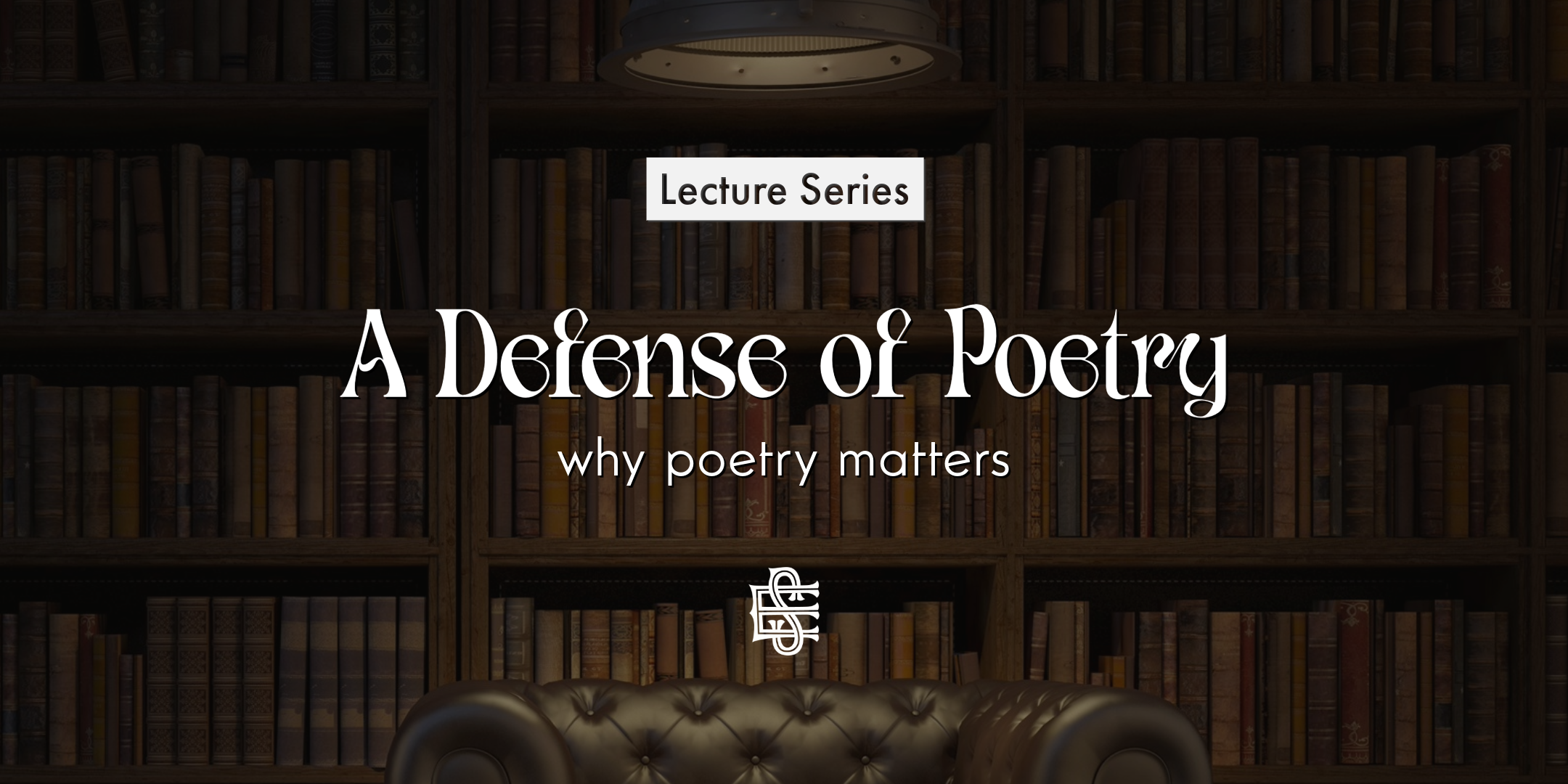
A Defense of Poetry: why poetry matters
Join Professor Katrina Atsinger on a whistle-stop tour of English verse from the Anglo-Saxon to contemporary eras. We’ll pause for beauty and truth, acknowledge what’s hard, and even recognize the challenges of an art form that, like others, reflects society right back at us.
 Katrina Atsinger
Katrina Atsinger
BA/MA English Language and Literature (Oxford University); MA Liberal Arts (St. John’s College)
Adjunct Professor of English at the United States Naval Academy; amateur poet; compulsive essay writer; life-long dancer; Christian school volunteer on the East and West coasts; dual citizen of the U.K. and U.S.; and, with her husband, co-creator of poetic events.
When Katrina was 13, she performed Keats’ “La Belle Dame Sans Merci” and won a regional poetry recitation contest. In the experience of performance, she discovered that “still point of the turning world” where the “…dance is.” (from “Burnt Norton” first of Eliot’s Four Quartets) At the time, she had not yet encountered T.S. Eliot, but she did perceive that poetry has a way of accessing the deepest place of mystery where we encounter meaning. Much later, she would recognize and embrace the “dance” that is neither still nor in motion – a poetic paradox that penetrates the insulation of our prose existence, so we can be touched by Truth.
Reading for a degree in English Literature and Language at Oxford University intensified her exposure to the variations in form, fashion, and genius from Anglo-Saxon to the present but it was only when she started teaching British poetry to 10th Graders in California that her personal connection with the art form flourished.
For a season that included four years in The Netherlands, motherhood became her poetic experience, but she craved a return to more formal study. A move to Annapolis eventually led to a proper venture into the Great Books to read those works that sit behind English Literature as she pursued her master’s degree at St. John’s College. There, she could really attempt to understand Eliot and Modernism and her award-winning essay on Joyce is published in the St. John’s library.
Five years ago, she re-entered the classroom in a teaching capacity and now, every Spring, she takes her Plebe-year Midshipmen on a rapid journey through the poetic landscape of the English language. Their first formal essay of the semester is “A Defense of Poetry” – a worthy exercise for men and women who need to make an intentional effort to encounter and grow that part of themselves unserved by STEM and the mental, physical, and technical demands of their routine and highly challenging existence.
Whether entertaining preschoolers every week at the Annapolis Bookstore (now Old Fox Books), recording “salon” videos for Elan Ensemble during the Covid shutdown or matching and reciting poetry to a program of baroque classical music and historic seasonal favorites in the ballroom at the Hammond Harwood House, Katrina continues to enjoy recitation and composition of poetry in its many forms. Most recently, she prepared and narrated the libretto for a new one act ballet set to Strauss’s symphonic poem on Macbeth, performed by the Ballet Theater of Maryland.
—


